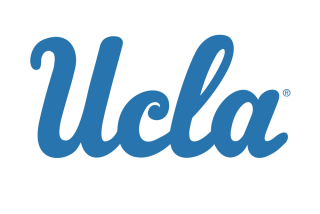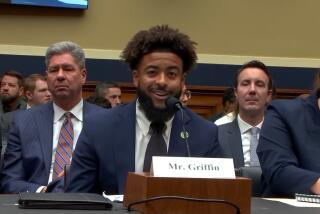Drug Test Leniency Harming Athletes
Today 64 men’s and women’s college basketball teams will be selected to compete in the National Collegiate Athletic Assn.’s championship tournament.
This collegiate ritual is affectionately referred to as “March Madness.” The two tournaments reflect much of what is good in college athletics today: sportsmanship, school pride, teamwork and the drive to win.
However, there is another side to college athletics largely ignored by universities and the NCAA, not because the problem is insurmountable but because these institutions are looking out for their interests instead of what is good for the student athlete.
This point is easily illustrated by recent events at UCLA. Jelani McCoy, a member of the school’s prestigious men’s basketball team, allegedly failed repeated drug tests. UCLA’s belated response failed to address McCoy’s long-term well-being, opting instead for a non-controversial Band-Aid approach. Essentially UCLA ratified McCoy’s alleged activities by not acting decisively until it was too late. Ultimately the university did suspend McCoy. He, however, later quit the team after rumors circulated that he had tested positive again.
Are college sports so important to popular culture that Americans are willing to turn a blind eye to the student’s underlying purpose at the university, which is gathering knowledge for lifelong success? The McCoy matter, although personally tragic, could be the needed catalyst to bring the drug-use issue forward for public debate.
The University of California and Cal State University systems say their campuses test student athletes for recreational and performance-enhancing drugs. However, procedures vary widely from campus to campus.
For example, if a Cal State student athlete tests positive twice for recreational drugs, he or she is suspended from athletic participation and scholarship benefits for one year. At UCLA, a second positive test only results in a meeting, more tests and three counseling sessions.
A third positive test at a Cal State campus leads to a permanent suspension from the team and permanent loss of any scholarship. At UCLA, a third positive test merely results in more meetings, more tests, more counseling and finally a single game suspension.
*
At UCLA, a student athlete must test positive four times before his or her scholarship is revoked. Even then the university will allow the student to finish the quarter before revoking the scholarship. Clearly UCLA’s drug testing program is extremely lenient, almost to the point of nonexistence.
Why do university drug-testing programs differ so much from campus to campus? Why are major universities, such as UCLA, more lenient than smaller universities, such as those in the Cal State system?
Some people have suggested that it is because major universities have more to lose financially by having a star athlete test positive for drugs. In other words, major universities are more concerned with making money than with the health and safety of their student athletes. This perception, whether true or false, will always exist until major universities take this issue seriously.
I have introduced Senate Bill 1786, legislation that will require all UC and Cal State universities to test student athletes for drugs twice during an academic year--once at the beginning of fall semester and a second test any time during the year.
SB 1786 would allow a student athlete to test positive for recreational or performance-enhancing drugs only once. After the first positive test, the student athlete would be suspended for a three-month period, including from competition and practice. During this three months, the athlete would undergo extensive counseling and a special drug-education program to treat addiction. The student athlete could return to practice and competition after the three months if he or she had completed the individualized drug-education and rehabilitation program and had tested negative in random drug tests during the suspension.
Upon a second positive test, the athlete’s scholarship would be revoked by the university and the student athlete could not participate in NCAA athletics on any public university campus in California.
Some people have said SB 1786 is too punitive. In my view, suspending the student athlete for only one game and not adequately treating the drug addiction is the worst punishment he or she could receive.
Senate Bill 1786 is prompting much needed discussion about an issue that universities wish would fade away. Universities should not be allowed to sweep this under a rug. I intend for this issue to be “madness to their ears” well beyond March. I will not stop until it is clear universities are adequately ensuring the health and safety of every student athlete in California.
More to Read
Go beyond the scoreboard
Get the latest on L.A.'s teams in the daily Sports Report newsletter.
You may occasionally receive promotional content from the Los Angeles Times.






